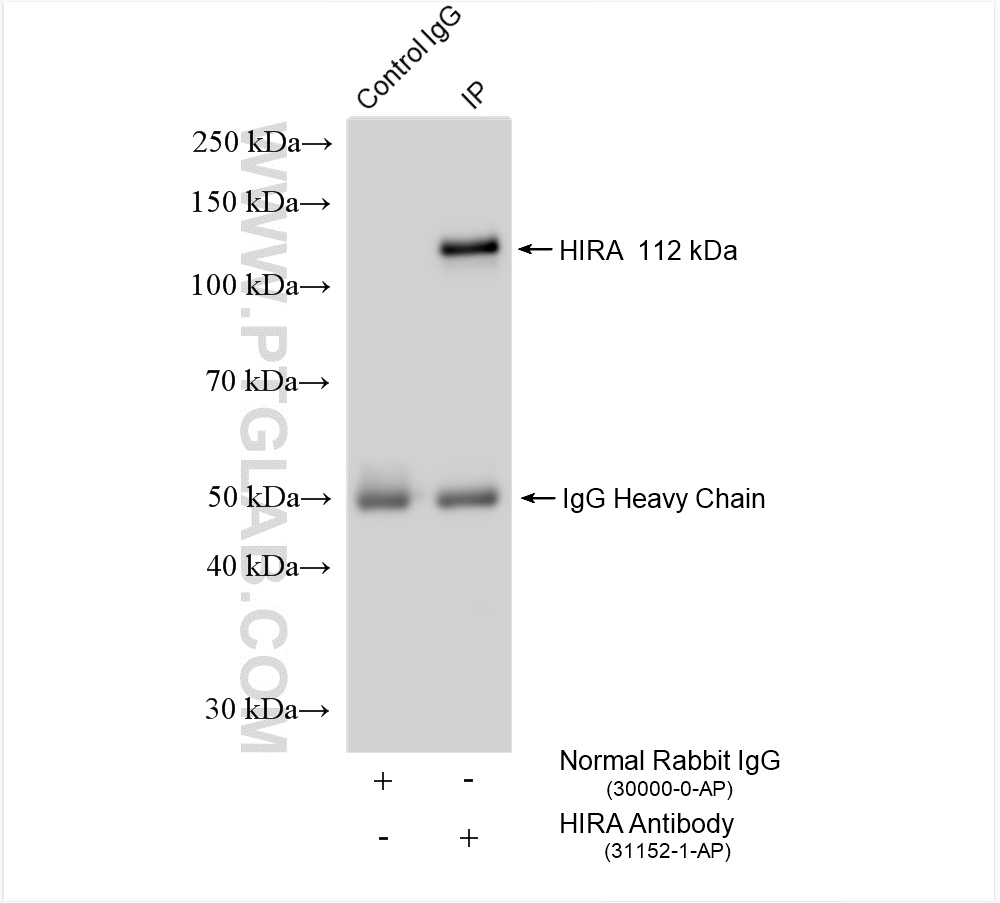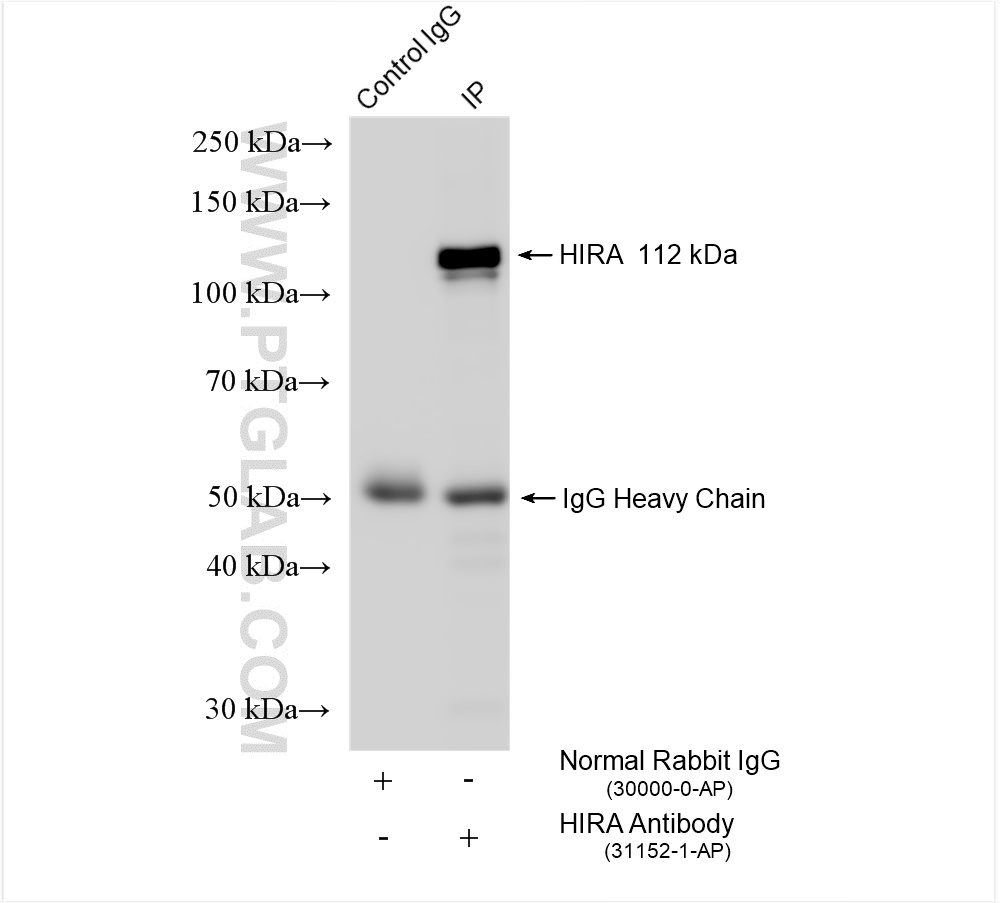验证数据展示
经过测试的应用
| Positive IP detected in | HepG2 cells, K-562 cells |
推荐稀释比
| 应用 | 推荐稀释比 |
|---|---|
| Immunoprecipitation (IP) | IP : 0.5-4.0 ug for 1.0-3.0 mg of total protein lysate |
| It is recommended that this reagent should be titrated in each testing system to obtain optimal results. | |
| Sample-dependent, Check data in validation data gallery. | |
产品信息
31152-1-AP targets HIRA in IP, ELISA applications and shows reactivity with human samples.
| 经测试应用 | IP, ELISA Application Description |
| 经测试反应性 | human |
| 免疫原 |
CatNo: Ag34439 Product name: Recombinant human HIRA protein Source: e coli.-derived, PGEX-4T Tag: GST Domain: 850-1017 aa of NM_003325 Sequence: SLSTWNLVSDKQDSLAQCADFRSSLPSQDAMLCSGPLAIIQGRTSNSGRQAARLFSVPHVVQQETTLAYLENQVAAALTLQSSHEYRHWLLVYARYLVNEGFEYRLREICKDLLGPVHYSTGSQWESTVVGLRKRELLKELLPVIGQNLRFQRLFTECQEQLDILRDK 种属同源性预测 |
| 宿主/亚型 | Rabbit / IgG |
| 抗体类别 | Polyclonal |
| 产品类型 | Antibody |
| 全称 | HIR histone cell cycle regulation defective homolog A (S. cerevisiae) |
| 别名 | Protein HIRA, HIRA/HIR, HIR |
| 计算分子量 | 112 kDa |
| 观测分子量 | 112 kDa |
| GenBank蛋白编号 | NM_003325 |
| 基因名称 | HIRA |
| Gene ID (NCBI) | 7290 |
| RRID | AB_3669873 |
| 偶联类型 | Unconjugated |
| 形式 | Liquid |
| 纯化方式 | Antigen affinity Purification |
| UNIPROT ID | P54198 |
| 储存缓冲液 | PBS with 0.02% sodium azide and 50% glycerol, pH 7.3. |
| 储存条件 | Store at -20°C. Stable for one year after shipment. Aliquoting is unnecessary for -20oC storage. |
背景介绍
HIRA protein is encoded by a gene within a region of human chromosome 22q11.2 deleted in most patients with the DiGeorge syndrome, a developmental disorder, and was named for its amino acid sequence homology to two S. cerevisiae proteins, Hir1p and Hir2p. HIRA is critical in a specific chromatin assembly pathway that takes place independently of DNA synthesis (PMID: 12049744). HIRA complex associates with various proteins, such as transcription factors, RNA pol II, Prohibitin (PHB), and replication protein A (RPA) suggests that the targeting of the complex at specific locations may exploit additional structural properties and mechanisms (PMID: 30082790).
实验方案
| Product Specific Protocols | |
|---|---|
| IP protocol for HIRA antibody 31152-1-AP | Download protocol |
| Standard Protocols | |
|---|---|
| Click here to view our Standard Protocols |



